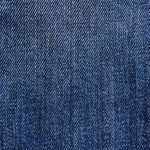As for the uses of cotton, it's quite versatile! In the textile world, it's a go-to for fabrics like flannel, velvet, and corduroy. From soft bedding to durable upholstery, it's perfect for home décor. In industry, cotton shines in wall coverings and zipper tapes. Medical tools like wound dressings also rely on its absorbent nature. In agriculture, it feeds livestock and enriches soil. Modern products like diapers and hygiene pads are also cotton contenders. It's eco-friendly too! There's a whole world of cotton out there, with more surprises to uncover.
Table of Contents
Key Takeaways
- Essential in apparel industry for fabrics like flannel and corduroy.
- Used in home furnishings like bedding and towels for comfort and absorbency.
- Crucial in medical supplies for wound dressings and swabs.
- Utilized in industrial products such as wall coverings and zipper tapes.
- Found in modern consumer goods like diapers, hygiene pads, and baby care products.
Textile Industry Applications
In the textile industry, cotton serves as a versatile and indispensable material for creating a wide range of fabrics and products. Cotton fiber is the backbone of the apparel industry, used to make threads for various purposes.
Fabrics like flannel, velvet, velour, and corduroy are all created using cotton fibers, providing comfort and breathability to the wearer. Beyond clothing, tools such as fishnets, bookbinding materials, and even coffee filters are made using cotton due to its strength and durability.
One surprising use of cotton in the textile industry is its key role in cotton candy production, where the fine fibers are spun to create the sugary treat. The apparel industry heavily relies on cotton for its versatility and comfort, making it a staple material in creating various textiles that we use in our daily lives.
Home Furnishing Uses
I love how cotton is used in making soft bedding materials like bedspreads, creating a cozy and inviting atmosphere in our homes.
It's also great as a durable upholstery fabric, ensuring our furniture stays comfortable and stylish for a long time.
Plus, cotton's absorbent nature makes it perfect for kitchen towels, helping us keep our cooking and dining areas clean and tidy.
Soft Bedding Materials
Cotton's incorporation into soft bedding materials brings a touch of comfort and breathability to home furnishings. Bed linens like sheets, pillowcases, and bedspreads made from cotton are popular due to their softness and ability to keep you cool in warmer temperatures.
Nearly all towels and washcloths are crafted from cotton, making it a top choice for bathroom linens as well. Its natural feel and durability make cotton a preferred option for window treatments too.
With over 60% of the market for sheets and pillowcases dominated by cotton, it's clear that this material provides a cozy and comfortable experience in various home furnishing items.
Durable Upholstery Fabric
When selecting upholstery fabric for home furnishings, durability is key, making cotton a popular choice for its strength and resistance to wear and tear. Cotton upholstery not only offers durability but also provides comfort, breathability, and the ability to maintain its shape over time. Its easy cleaning properties make it ideal for furniture that encounters spills and stains. Additionally, cotton fabric for upholstery comes in a variety of colors and patterns, allowing for versatile design options in home decor. Furthermore, choosing cotton upholstery fabric aligns with sustainability values, as cotton is a natural, biodegradable material that can be recycled or repurposed.
| Advantages of Cotton Upholstery | |
|---|---|
| Strength and Durability | Easy to Clean |
| Comfort and Breathability | Versatile Design Options |
Absorbent Kitchen Towels
Absorbent kitchen towels made from cotton are a practical and essential addition to any household, offering high absorbency and durability for everyday use in the kitchen. When it comes to kitchen tasks, cotton towels are my go-to choice for several reasons:
- High Absorbency: Cotton towels quickly soak up spills and liquids, making them efficient for drying dishes and hands.
- Gentle on Surfaces: The soft nature of cotton makes these towels gentle on surfaces, preventing scratches or damage.
- Easy Maintenance: Cotton kitchen towels are easy to wash, maintain their quality over time, and are environmentally friendly options for households.
Choose cotton kitchen towels for a reliable and sustainable kitchen essential.
Industrial Product Utilization
In various industrial sectors, cotton finds extensive utilization in products such as wall coverings, bookbindings, and zipper tapes. Cotton's versatility and durability make it a popular choice for these applications. Wall coverings made from cotton provide both aesthetic appeal and practicality, offering a sustainable and stylish option for interior design. Bookbindings crafted from cotton guarantee the longevity of important documents and enhance the overall quality of books. Additionally, cotton zipper tapes are known for their strength and reliability, making them essential components in various textile products.
Moreover, cotton plays an essential role in the production of industrial threads, contributing to the creation of high-quality fabrics and textiles. Its use in industrial products underscores the significance of cotton in diverse sectors, showcasing its wide range of applications beyond traditional clothing and household items. The continued utilization of cotton in industrial settings highlights its value and relevance in modern manufacturing processes.
Medical Supplies and Cotton
I'll begin by highlighting the importance of cotton in medical supplies.
Cotton is used in various products such as wound dressings, swabs, and pads that play a crucial role in healthcare settings.
These items are essential for treating injuries and maintaining hygiene.
Cotton's absorbent nature makes it a valuable material for creating essential medical products.
Wound Dressings
Cotton plays a crucial role in wound care as a primary material in bandages for effective wound dressing in medical supplies. When it comes to wound management, cotton's absorbency and hypoallergenic properties make it a preferred choice for various products. Specifically, in this situation, cotton is used in medical cotton pads to aid in wound healing.
Additionally, wipes designed for cleaning wounds effectively often contain cotton for its gentle yet efficient nature. Furthermore, cotton is an essential component in producing earbuds used for medical and personal hygiene purposes. These applications highlight the versatility and importance of cotton in the domain of wound dressings.
Swabs and Pads
Swabs and pads are indispensable tools in medical settings, offering versatile applications for wound care and hygiene maintenance. Cotton swabs are commonly used for wound cleaning and applying medications due to cotton's absorbency and hypoallergenic properties. They provide a gentle and effective way to care for injuries.
Similarly, cotton pads are essential for tasks like makeup removal, applying skincare products, and wound care. The soft texture of cotton guarantees patient comfort and safety, making it ideal for sensitive areas and delicate skin care routines. The natural properties of cotton make it a preferred material for medical supplies, ensuring a gentle touch for various healthcare needs.
Cotton in Agriculture
Enriching the soil and providing valuable protein sources for livestock, cotton plays an essential role in agriculture.
Here are three key uses of cotton in agriculture:
- Cottonseed as Protein Source: Cottonseed is a significant protein source for cattle and horses, making it a valuable component of animal feed. Its high protein content helps in maintaining the health and growth of livestock.
- Soil Enrichment with Cotton Stalks: After harvesting cotton, the stalks aren't wasted. Instead, they're used to enrich soil, acting as a natural fertilizer. Additionally, these stalks find utility in paper and cardboard production, promoting sustainability in various industries.
- Utilization of Cotton Fibre: Cotton fibre isn't just for textiles. The cotton linters obtained from the seed are utilized in the production of various items like medical supplies and even flat-screen televisions. This versatile use of cotton fibre showcases its importance beyond traditional textile applications in agriculture and other sectors.
Innovative Cotton Products
After exploring cotton's role in agriculture, let's now discover the innovative domain of cotton products that cater to modern consumer needs and preferences.
Cotton isn't only a staple in our wardrobes but also in innovative items like high-quality diapers and natural hygiene pads. The softness and essential properties of cotton fibers make it an ideal choice for baby care products, ensuring comfort and safety for little ones.
In addition to diapers, cotton is commonly found in baby wipes, lotions, body washes, and shampoos. For feminine care, cotton is a preferred material in hygiene pads, panty liners, and tampons due to its breathability and gentle touch.
Furthermore, cotton plays a significant role in the creation of sustainable and natural hygiene products, meeting the increasing demand for eco-friendly options in the market. By incorporating cotton into these innovative products, manufacturers are able to provide consumers with reliable and comfortable solutions for their everyday needs.
Sustainability of Cotton
Cotton's sustainability is underscored by its biodegradability and renewable characteristics, making it a top choice for eco-conscious consumers. Here are three key aspects highlighting the sustainability of cotton:
- Water and Pesticide Reduction: Advancements in cotton farming practices have led to significant reductions in water usage and pesticide use. Technologies such as drip irrigation and integrated pest management help conserve water resources and minimize the environmental impact of farming.
- Soil Health and Biodiversity: Sustainable cotton farming methods focus on promoting soil health and biodiversity conservation. Practices like crop rotation and cover cropping enhance soil fertility, reduce erosion, and support diverse ecosystems on cotton farms.
- Organic Cotton Production: Organic cotton production avoids the use of synthetic chemicals, benefiting both the environment and human health. By opting for organic cotton products, consumers can support sustainable farming practices that prioritize ecological balance and the well-being of farmers and surrounding communities.
Frequently Asked Questions
What Are 5 Common Uses for Cotton?
Well, there are several common uses for cotton. It's used in making clothes like t-shirts, jeans, socks, boxer shorts, and nappies. Cotton is a versatile material that's essential in many everyday items.
What Cotton Is Used For?
Cotton serves various purposes, from clothing to household items. Its softness and versatility make it a popular choice in apparel, bed linens, coffee filters, and more. The uses of cotton are diverse and essential in daily life.
What Is the Biggest Use of Cotton?
The biggest use of cotton is in the apparel industry, where about 57% of it goes into making clothing items. Cotton dominates men and boys' clothing markets with products like jeans, shirts, and underwear, showcasing its fashion industry significance.
Why Is Cotton so Useful?
Cotton is incredibly useful due to its softness, breathability, and hypoallergenic properties. It's versatile and can be found in apparel, home textiles, and industrial goods. Its absorbency makes it perfect for healthcare products like towels and bandages.
- Tetron Fabric for Curtains: Style and Maintenance Guide - June 18, 2025
- Tetron Fabric for Bedding: Comfort and Care Tips - June 18, 2025
- Tetron Fabric for Luggage: Durability and Design Tips - June 18, 2025







